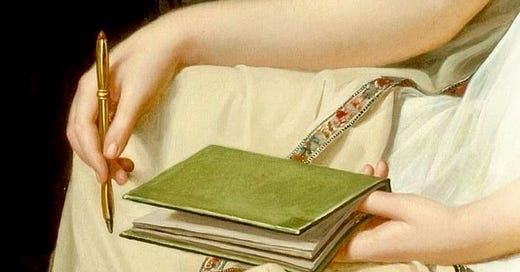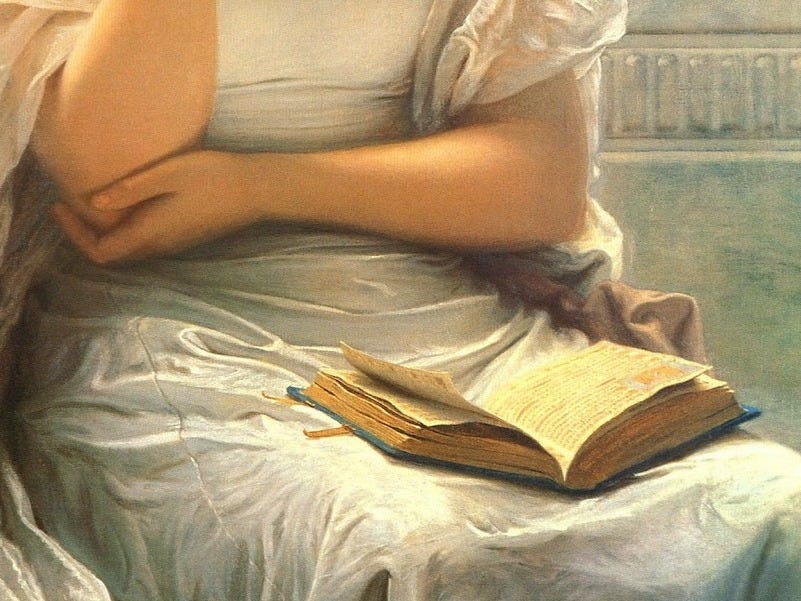Fear is a debilitating and insufferable emotion. An enemy of the creative perhaps more than most. It strips the freedom to explore the heart’s desires and hides its carrier away in a box of confinement. However, what must be known is that fear is a mere thorn sprouted before the blossom of the rose: the consequence of perseverance.
Throughout my career, whenever I’ve spoken on story structure I have been confronted by a writer with their fear: “Won’t following a story structure make my story’s end obvious?” “Won’t tropes make my story predictable?”
Please. In short, the answer is always no. Though I do understand how the young writer may have this fear. There has always been an emphasis on uniqueness in the world. Without something new to convey, there is no story to tell, as it has all already been said and done before. However, I would offer a different perspective.
Does the gun’s introduction make the scene more predictable or suspenseful?
Indeed, we are at war with the idea that tropes and structure encourage predictability. We are at war with our own likeness and desire for uniqueness. But just because the reader is aware that something is about to happen, doesn’t mean it is any less suspenseful. You see, tropes are a mode of creating tension. Similar to planting promises that an event foreshadowed at the beginning of the plot will transpire later on.
As you possibly have encountered, every story is not original in the plot points it conjures, but in the way the experience is conveyed. It is not the job of the writer to present a new experience, but it is, instead, to present a new perspective on an already-known experience. Readers, audiences, are waiting to put into words their own personal endeavours. Not many have learnt the skill to find the way to express in precision the way that grief has shaped their lives, or the ways that love consumes their souls.
What one should fear—if fear anything at all—is the lack of tension in their scenes. Predictability doesn’t necessarily make a story feel bland to the intended audience. For example, when watching an action movie with an obvious antagonist, the audience is well aware that at some point in the story, the antagonist will be defeated. What is unknown is the how, and that is the most important aspect of any story. That is where the writer explores their creativity and really creates a plot worth following. Therefore, this lack of tension, again, does not come from predictability, but the stakes.
However, predictability does exist, and often it is hard to evade when the mode of telling the story has been overly done. To ensure any story’s uniqueness, the answer lies within the character’s inner workings: their fears, their goals, their non-negotiable personality traits, their faults, their desires, their philosophies. Once this is understood, the way said character react to their obstacles would be anything but cliché.
What’s more, having this deep understanding of the character will impel the readers to invest their interests in them. Once this empathetic bond has been formed between the reader and character, the writer can now have some fun playing with the stakes. The reader will be acutely aware of how certain situations will make the character feel and how those very same situations will jeopardise the motivations of the story, which provides room for the writer to plan the stakes to mean so much more to this character.
See, the readers don’t care so much for the plot as they do what will happen to the character. Relationships don’t form with plots, but rather with those experiencing them. Each choice the character makes will be unique to their personality, and that is how each story, despite the structure and the tropes used, are made unique.
I’m a freelance book editor whose biggest dream is to help you achieve yours. Visit my website to find out more about my editing services.








Good question. Do tropes make stories predictable?
There is some truth to this. A good example is all the crime tropes as a genre. Having a detective means crimes were committed and or will be committed as the story goes on. That’s just how they go. Those crime stories seem like they’re repeating themselves just with new characters because of what we know will happen. It’s predictable in that regard. Watch enough Law and Order, CSI episodes, Dateline’s Crimes of Suburbia shows on Friday night and you see patterns or tropes emerge.
But sometimes, we can ignore the trope label and approach them as more of the plot than a side effect. Maybe as a theme or in some cases, an antagonist itself.
Perhaps giving a trope a new dynamic or “assignment” can overlook the trope stigma, if such a thing exists. Some authors relish the tropes and others try to work around them, and that’s fine either way. I think stories will always have at least one trope or even create a new trope entirely. Tropes may be predictable, but the plot doesn’t have to be. I think it’s awesome when an author can turn a trope on its head and give readers something they were NOT expecting. A massive plot twist, if I may. Teach old dogs new tricks. This move has potential for stories to not be as predictable as readers guess/assume they are.
This is how we expand the borders of good fiction out a little more and give more authors a chance and a voice.
Love this perspective. Tropes are necessary, because genres are bound by them. Your article made me think of how storytelling seems to offer a palette of colors to draw from, and we all sort of draw from the same colors, but it's the picture (as you mention - our perspective, experience) that makes a great story.